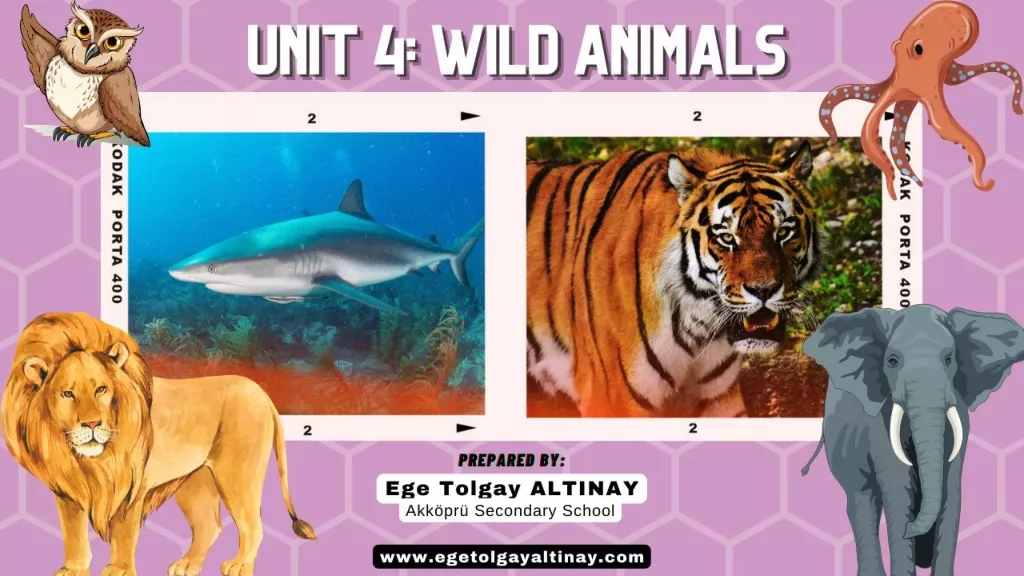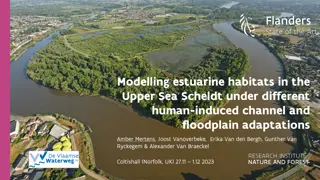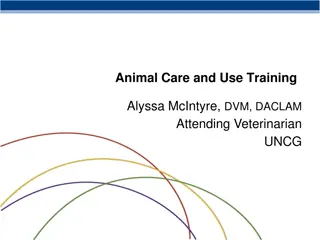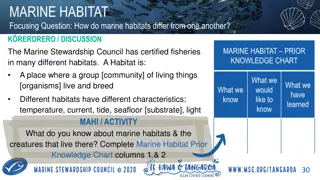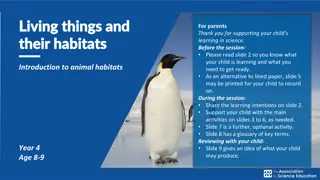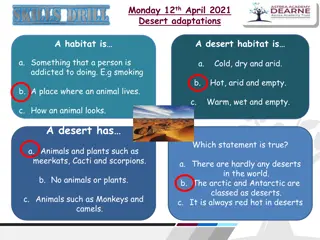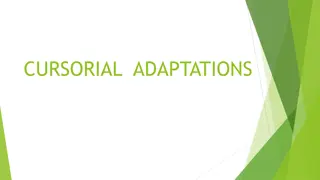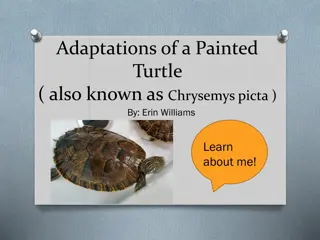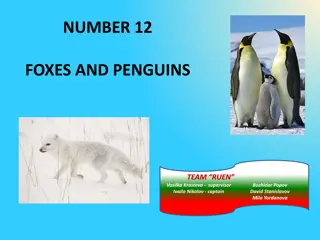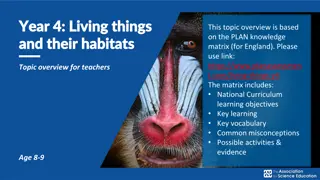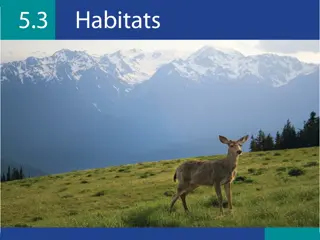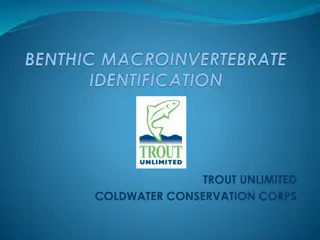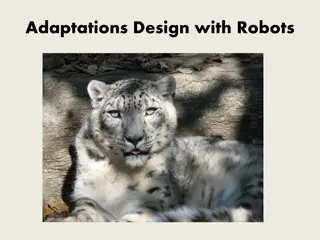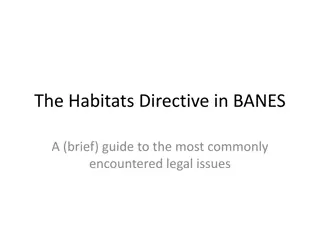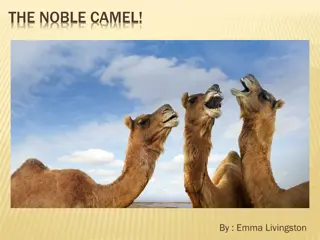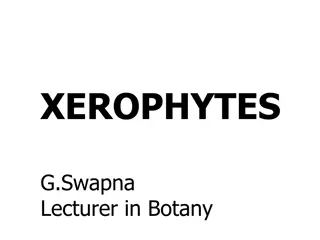Animal Adaptations/Habitats Vocabulary
How animals thrive in the harsh habitats of Death Valley National Park through their unique adaptations, from blending in with the surroundings to being active at night or during the day.
Download Presentation

Please find below an Image/Link to download the presentation.
The content on the website is provided AS IS for your information and personal use only. It may not be sold, licensed, or shared on other websites without obtaining consent from the author.If you encounter any issues during the download, it is possible that the publisher has removed the file from their server.
You are allowed to download the files provided on this website for personal or commercial use, subject to the condition that they are used lawfully. All files are the property of their respective owners.
The content on the website is provided AS IS for your information and personal use only. It may not be sold, licensed, or shared on other websites without obtaining consent from the author.
E N D
Presentation Transcript
Animal Adaptations/Habitats Vocabulary Death Valley National Park
adaptations a change or the process of change by which an organism or species becomes better suited to its environment. For example, a coyote s fur blends in with its surroundings Photo Credit Kurt Moses NPS
habitats the natural home or environment of an animal, plant, or other organism. For example, Death Valley or the Mojave Desert Photo Credit Kurt Moses NPS
thrive (of a child, animal, or plant) grow or develop well or vigorously. For example, a flower growing in the ground Photo Credit Kurt Moses NPS
nocturnal animals that sleep during the day and are active at night For example, a bat will sleep during the day and forage for food at night. Photo Credit Microsoft Clip Art
diurnal active during the day For example, a raven is active during the day and sleeps at night. Photo Credit Microsoft Clip Art
Resources Dictionary.com - http://www.dictionary.com/ Photo Credit: Kurt Moss NPS Microsoft Clip Art
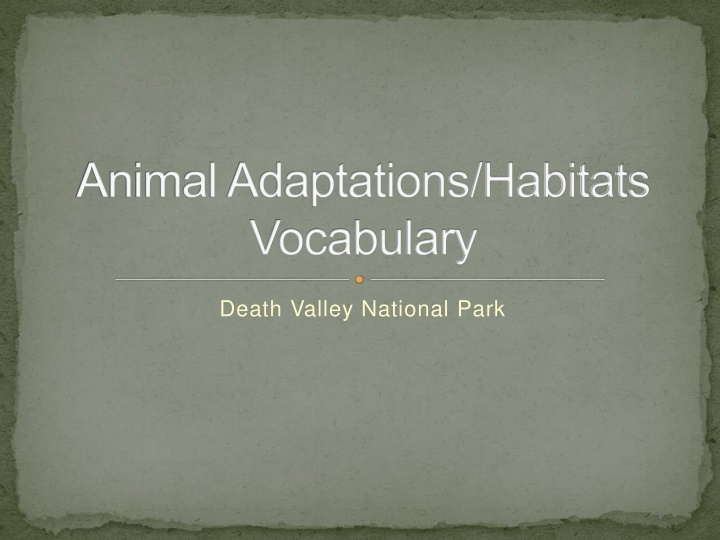

![get⚡[PDF]❤ Building Habitats on the Moon: Engineering Approaches to Lunar Settle](/thumb/21624/get-pdf-building-habitats-on-the-moon-engineering-approaches-to-lunar-settle.jpg)
